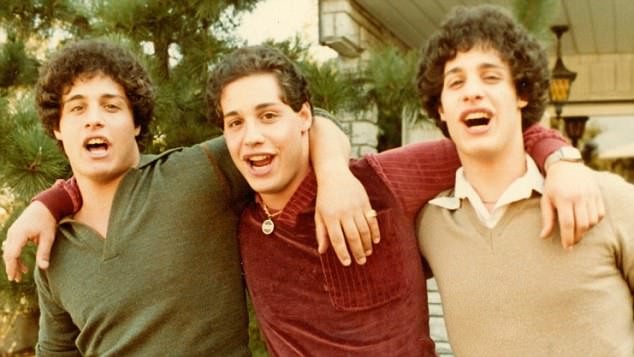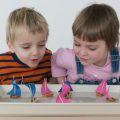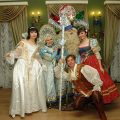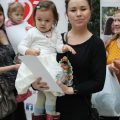In the distant 1980, 19-year-old Robert entered thecollege. He was very surprised at how he was met there: the boys slapped friendly on the back, the girls hugged and smacked on the cheek. It was all very nice and nice. Except for one thing: everyone called Robert Eddie. When he tried to explain that his name was wrong, the students only laughed. Later Robert found out: last year Eddie really studied here, like two drops of water like him. It was not just about the color of hair, eyes, growth and physique. They were the same, right down to facial expressions. And then it turned out that the birthdays of the young men fall on the same day - July 12, 1961. Both were adopted children. Robert took up his quest for a double. Also has found. From left to right: David, Eddie and Robert Photo: GettyImages
From left to right: David, Eddie and Robert Photo: GettyImages
Unknown brothers
When the boys met, they were justshocked. Literally everything about their appearance was the same, even the location of their moles. They spoke the same way, they had a similar laugh. They had the same IQ - 148. Very high, by the way. They were both into wrestling, preferred the same techniques. Robert and Eddie liked the same movies, quoted the same moments from them by heart. And they even lost their virginity at the same time. "It was incredible. Some kind of surrealism," they later told journalists. Hospital records of the birth of Ed and Robert confirmed that they were twins. But this was not the last discovery that awaited them. Soon, a phone call rang in Ed's house: "I think I'm your third brother." It was David - the guy saw Eddie and Robert on TV and was shocked by how similar they were to him. In the end, it turned out that there were not even three boys, but four. Their fourth twin died during childbirth.
Inhuman experience ...
Immediately after the birth of the children, they were given to the agencyadoption agency that collaborated with Dr. Peter Neubauer, a psychoanalyst and director of the Child Development Center in Manhattan. This same doctor was conducting a secret study, which included the surviving triplets. Neubauer wanted to find out what influences personality development more – genes or environment. Therefore, the children were scattered among different families, who were forbidden to even mention that the boys had blood relatives. Robert was luckier than the others. His adoptive father was a doctor, his mother was a lawyer. They lived in a prestigious area, the family was well-off. Eddie's family belonged to the middle class. And David grew up in Queens in a working-class family. Every month for 12 years, researchers visited the boys, watched how they played, communicated, talked with their adoptive parents and sisters, conducted tests. In general, they treated them like lab animals. The brothers even opened the restaurant together, but were burnt out Photo: GettyImages
The brothers even opened the restaurant together, but were burnt out Photo: GettyImages
... and dubious conclusions
What comes first - heredity or environment?habitat? The study did not put an end to this dispute. Robert, although he was brought up in a prosperous family, almost ended up in prison: he participated in a robbery, during which an elderly woman was killed. But we remember that Robert's mother is a lawyer. The young man managed to get off with correctional labor in an orphanage. The young people had a lot in common besides their appearance: they liked the same dishes, they all liked older women. They all had strange seizures in childhood, when they banged their heads on the bed. David, the youngest of the three, was the most emotionally stable. And the middle one, Eddie, was the most nervous. He committed suicide at the age of 33, leaving his wife a widow and his daughter an orphan. Whether this tendency to depression was hereditary or not remains a mystery. The brothers, having learned the truth, hated Dr. Neubauer. However, until his death, he claimed that he had done the right thing: “Otherwise, the children would have had to compete for their parents’ attention.” Robert called the experiment Nazi, and compared Neubauer himself to Dr. Mengele. No one ever apologized to the brothers for their fates, which could have turned out completely differently. “They called us participants in the experiment,” said David. “But we were not participants. We were its victims.”









